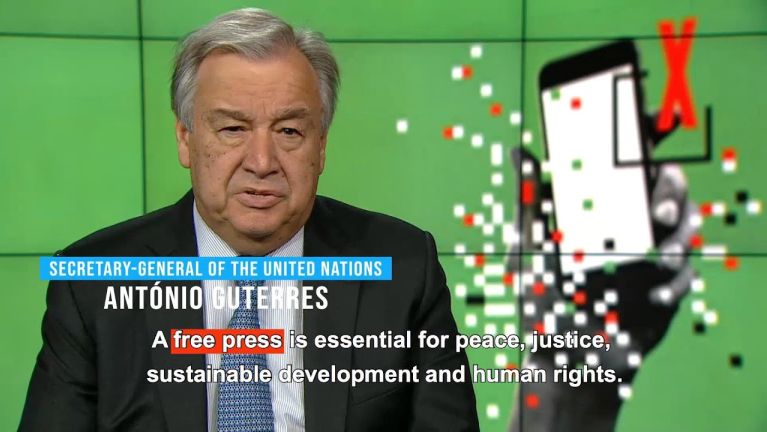
The journalist Katja Gloger: freedom of expression is a human right.
Katja Gloger , 22.04.2024
On 10 December 1948, the United Nations General Assembly met in Paris to sign a unique document, the Universal Declaration of Human Rights. Born of the terrible experiences of the Second World War, this statement of principles was to form the foundation upon which democratic societies could grow.
And so it says in Paragraph 19: “Every person shall have the right freely to express and disseminate his opinions in speech, writing and pictures”. Freedom of expression and its twin freedom of the press are accordingly an inalienable right of all people. They are enshrined in Article 5 of the German Basic Law.

What courage is needed, what overcoming of fear, even fear of death, to exercise the right of independent reporting in authoritarian states or dictatorships? For it is no coincidence that independent, critical journalism is invariably one of the first victims of the rise of authoritarian systems.
Democracy is not possible without freedom of expression and the press.Katja Gloger, journalist and board member of Reporters without Borders
A free and independent press brings us closer to the world. Journalists describe and explain beautiful and also often unfortunately terrible events; they track down the truth behind events, every day anew. Journalism should inform, not proselytize. Though journalists are not the "Fourth Estate", keeping a watch on rulers is of course one of their most important tasks. They hold the powerful accountable. An orienting force, journalism provides facts and arguments for public discourse.
A free press may not be controlled by the state; in Germany, for example, the Press Council Code provides a good basis for self-regulation. A free press is not free from mistakes; it must therefore be accountable and transparent and scrupulous in its work. Freedom of the press requires both responsible journalists and responsible citizens. Democracy is not possible without freedom of expression and the press. We do not have the right to risk this fundamental right.
Because freedom of the press makes us free.
(1) Every person shall have the right freely to express and disseminate his opinions in speech, writing and pictures, and to inform himself without hindrance from generally accessible sources. Freedom of the press and freedom of reporting by means of broadcasts and films shall be guaranteed. There shall be no censorship.
(2) These rights shall find their limits in the provisions of general laws, in provisions for the protection of young persons, and in the right to personal honour.
(3) Arts and sciences, research and teaching shall be free. The freedom of teaching shall not release any person from allegiance to the constitution.
You would like to receive regular information about Germany? Subscribe here: